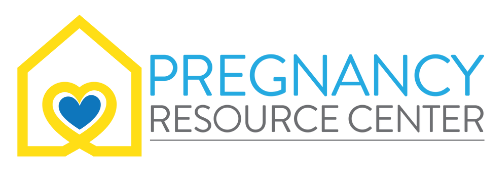
We all make decisions based on the information we know at the time. If you just found out that you are pregnant, you may experience angst as you think about all that you ate or drank in the last few weeks… before you even knew that you were pregnant! At PRC Tennessee, we want to empower you with the information you need to make the best decisions moving forward!
What if I drank alcohol before I knew that I was pregnant?
Stop drinking as soon as you find out that you are pregnant. Babies continue to grow and develop through the entire pregnancy, so it’s never too late to stop drinking. Your next step is to prioritize your health and your baby’s health by looking for regular, prenatal care with an OBGYN.
Is it safe to drink alcohol while pregnant?
According to the CDC, you should not consume any amount or type of alcohol while pregnant. Alcohol is a teratogen– an harmful substance that could affect the development of an embryo or fetus. Exposure to alcohol could increase risks to a baby, including premature birth, brain damage, birth defects, low birth weight, or problems with development.
How much drinking causes fetal alcohol syndrome?
Risks for fetal alcohol syndrome are highest in women who drink heavily and binge drink (more than four alcoholic beverages in one sitting). Women who drink lots of alcohol over a short amount of time increase their chances of having a child with a neurodevelopmental disorder. As soon as you discover that you are pregnant, stop drinking alcohol. Then, speak honestly with your healthcare provider about how much alcohol you’ve consumed.
What is fetal alcohol syndrome?
Fetal alcohol syndrome disorder (FASD) refers to a variety of adverse developments in children who were exposed to alcohol before birth. Children with FASD could have hyperactive behaviors, poor judgment skills, heart problems, cognitive delays, hearing problems, and other complications.
My friend drank during her pregnancy, and her baby was fine. Can’t I drink something?
Every pregnancy, woman, and baby is different. Mothers metabolize alcohol differently. Plus, the timing of alcohol exposure will affect your baby uniquely as he or she develops. The safest thing you can do is avoid alcohol all throughout your pregnancy.
Can alcohol cause miscarriage?
Continual heavy drinking may increase a woman’s chances of a miscarriage. Studies show that for each week a pregnant woman continues to drink, her chances of miscarrying increase. At Pregnancy Resource Center, we can verify your pregnancy and confirm a viable pregnancy with an ultrasound. If you’re concerned that you may be miscarrying, you should seek medical attention immediately.
How do I avoid drinking alcohol while pregnant?
Refusing to drink while pregnant may feel hard. Find ways to avoid situations where you would feel pressured to drink. Ask your friends and family for support. Find a drink that feels fun but doesn’t include alcohol, like caffeine-free tea, sparkling sodas, or smoothie. Remove all alcohol from your house. Find ways to manage your stress that doesn’t involve alcohol.
Can the father’s drinking affect my pregnancy?
Researchers continue to explore whether alcohol affects sperm. Currently, studies only show complications with alcohol exposure after conception (when the egg and sperm meet). But a father does play a vital role in supporting his partner in helping her avoid alcohol during her pregnancy.
I’m getting an abortion. Can I still drink alcohol?
You should refrain from drinking alcohol before, during, or immediately after an abortion or any medical procedure. Alcohol could interfere with certain medications given to you for infection or pain. Additionally, alcohol can thin your blood and could cause complications after your abortion.
I think I’m an alcoholic and pregnant, what should I do?
You’re incredibly brave for acknowledging an addiction to alcohol. You’ll likely need professional help to stop drinking. Pregnant women often receive help from compassionate support groups, counseling, outpatient treatment, and even medication to prioritize their health and their baby’s health. Call us today at (865) 326-3129 to seek the support you need.

Recent Comments